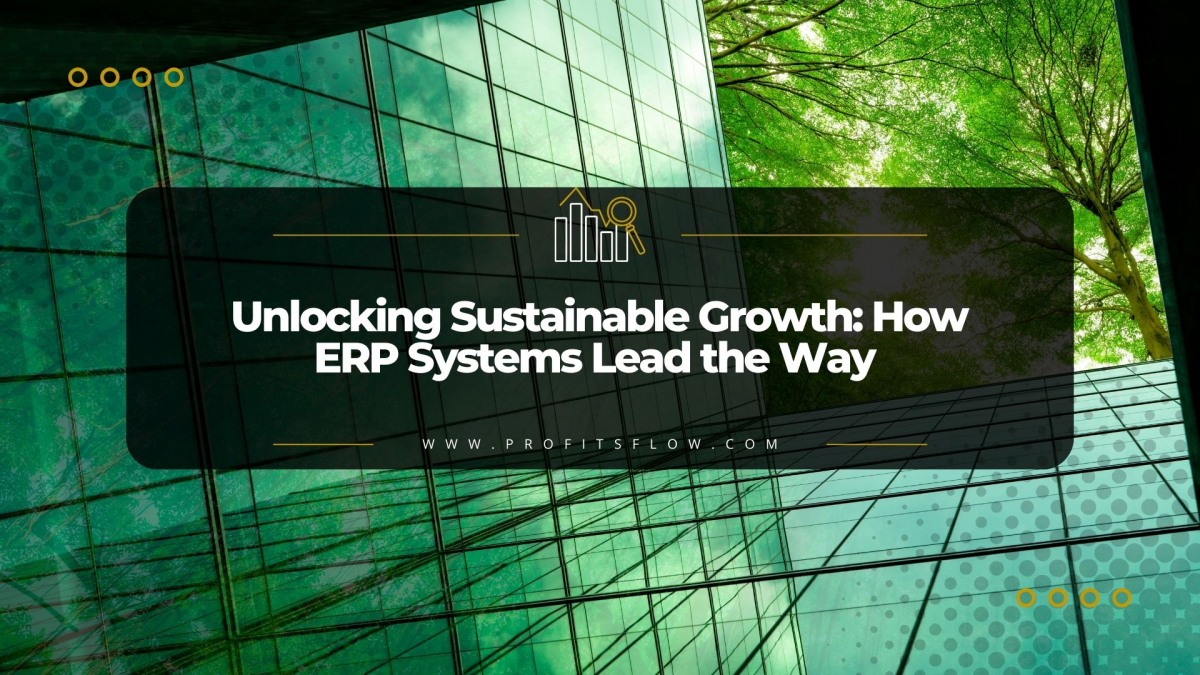Manufacturing Sustainability With ERP: Navigating Sustainability with Data and Efficiency
In an era where businesses are increasingly aware of their environmental impact, sustainability has become more than just a buzzword. It’s a strategic imperative. Enterprises are actively seeking ways to reduce their carbon footprint, minimise waste, and operate responsibly. In this quest for sustainability, Enterprise Resource Planning (ERP) systems are emerging as powerful allies. In this blog post, we’ll explore how ERP systems can contribute to sustainability efforts, benefiting both the environment and the organisation itself.
The Sustainable Advantage of ERP
Traditionally, ERP systems have been valued for their role in streamlining operations, enhancing efficiency, and supporting better decision-making. While these objectives remain at the forefront of their functionality, today’s ERP systems extend their influence far beyond these traditional realms. They’ve evolved to become powerful catalysts for sustainability. In this post, we’ll delve into the multifaceted ways in which modern ERP systems drive manufacturing sustainability efforts.
- Data-Driven Decision-Making: ERP systems centralise data from various departments, providing a holistic view of operations. With access to real-time data, businesses can make informed decisions that prioritise sustainability. For example, they can optimise transportation routes to reduce fuel consumption or adjust production schedules to minimise energy usage during peak demand times.
- Resource Management: ERP systems allow organisations to closely monitor resource consumption, such as electricity, water, and raw materials. With this data, they can identify areas of waste and implement measures to reduce it. This not only saves money but also reduces the environmental impact.
- Supply Chain Sustainability: Sustainable sourcing and ethical supply chain management are increasingly important to consumers. ERP systems can help businesses trace the origins of their products and ensure they meet ethical and environmental standards. This transparency builds trust with customers and demonstrates a commitment to sustainability.
- Environmental Reporting: Many ERP systems offer modules for tracking and reporting on environmental metrics, such as greenhouse gas emissions or waste production. These reports are valuable for compliance, but also for setting and achieving sustainability goals.
- Reduced Paper Usage: ERP systems promote digital documentation and communication. This reduces the need for paper in the office, leading to less deforestation and lower paper production emissions.
ERP systems are no longer just about managing your business; they’re about managing it sustainably. By harnessing the power of data, resource management, and supply chain optimisation, ERP systems are helping businesses reduce their environmental footprint and operate in a more responsible manner. In an era where sustainability matters more than ever, integrating sustainability into your ERP strategy is not just a choice; it’s a competitive advantage.
We here at Profitsflow recognise the importance of this matter and have observed an increased number of companies make this a priority when they implement our ERP solution EFACS E/8. We will continue our efforts to work alongside businesses to make them more sustainable and better our environment.
Remember, manufacturing sustainability isn’t a one-time goal but an ongoing journey. ERP systems are the vehicles that can help you navigate this journey efficiently, providing both environmental and economic benefits.
